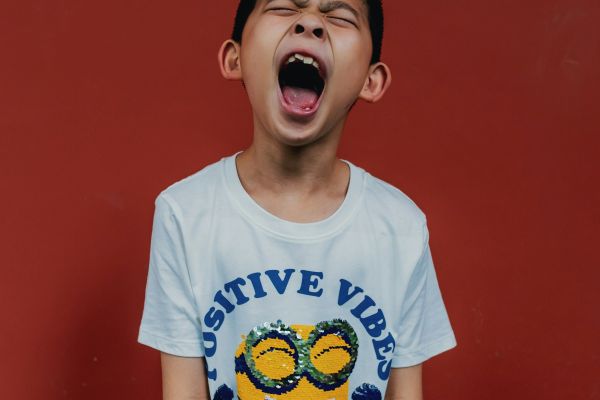Dysfunctional Parenting
Dysfunctional parenting threatens the bonds between parents and children but it can also damage the bonds between siblings. In dysfunctional households, children may have to compete with each other for parental attention or affection, leading to rivalry and resentment, and, when parents play favorites, the experience of having had completely different childhoods.
Verbal abuse of children receives less attention than overt physical abuse, but it can also have long-term effects. Such abuse does not just include yelling: “Quiet” verbal abuse may involve ignoring children when they share news or ask questions, expressing contempt for their ideas, gaslighting, and hypercriticism. The message conveyed by such actions—that a child doesn’t matter or have value—can promote self-criticism and impair emotional development. Research strongly suggests that, for a child, the negative effect of verbal abuse is stronger than the positive effect of a parent expressing love.
Adverse childhood experiences, including verbal or physical abuse or emotional neglect by parents, have been found to have significant effects on a person’s development and future physical and mental health, including higher rates of alcohol, drug, and nicotine addiction and a greater likelihood of becoming depressed, anxious, or promiscuous.
No one aspires to a rough childhood. But recent research finds that many adults appear to derive various psychological benefits from managing life in a tumultuous household, such as a greater ability to detect threats and shift focus between tasks. They also fare better on some measures of memory and creativity and generally display greater resilience.
Some forms of dysfunctional parenting emerge as a response to a challenging child. During the so-called “terrible twos,” young children may express high levels of defiance or aggression. In some cases, this tendency evolves into conditions such as oppositional defiant disorder. But even when it doesn’t, this behavior can lead to a set of dysfunctional responses from parents known as intrusive parenting, including limiting children’s autonomous wishes, offering excessive directions, or disrupting their opportunities to develop independently the skills they need to regulate their own behavior.
Some parents are unable to develop trust in a child’s decision-making or ability to make good judgments or learn from their mistakes. This leads to what some call fear-based parenting, describing a range of dysfunctional styles that emerge from an inability to trust kids to look out for themselves and a fear that they will not make it without a parent’s constant intervention. These approaches include helicopter, tiger, and snowplow parenting, but also defensive parenting, in which a parent’s choices are meant primarily to protect their own reputations.
In many dysfunctional households, parents and children assume certain roles in the family drama, whether it be one parent prosecuting a child, another parent defending a child, a sibling rushing in to protect a brother or sister or act as a martyr to protect them, or one or another family member constantly taking on the guise of victim, whether justified or not. Research and family therapy experience shows that if one or more members can find a way to give up their role, the others may find a path to more stable functioning as well, as they can begin acting for their own benefit, rather than reacting to someone else.
In a narcissistic family, the needs of the parent are generally placed ahead of the needs of the children, and sons and daughters, rather than focusing on their own development, prioritize pleasing a parent. In this type of family dynamic, children find that acceptance is conditional, and dependent in part on their submission to parental demands. Denial, rage, and blame may be common elements, while vulnerability and responsibility are rejected. Primarily, children in such households may grow up without a sense of emotional safety.
Children raised by parents with narcissistic personality disorder, or who are high in narcissistic traits, may grow up not feeling seen or heard, and without having their feelings acknowledged. Narcissistic mothers and fathers may focus on children as an accessory and judge them primarily on how their actions reflect on the parent. Children raised in narcissistic families may grow up with self-doubt and low self-esteem and self-efficacy, and they may struggle to develop healthy adult relationships because they lacked positive role models.
People raised by narcissistic parents, some research suggests, may spend their childhoods feeling as if they are constantly in the shadows. They may grow up with insecure attachment—shutting people out or desperately chasing love—or fierce independence, abandoning intimacy altogether. Others may develop echoism, or a desire to take up as little emotional space as possible in relationships, which makes them especially vulnerable to toxic or abusive connections.
Adult narcissists were not necessarily raised by narcissists. Other dysfunctional parenting styles, research suggests, may predict future pathological narcissism even more strongly, chief among them being overprotection. Overprotective, or “helicopter” parents in their efforts to shield a child from stress or setbacks, may raise narcissistic children by helping them to avoid responsibility or consequences. This effect, research finds, is stronger when a mother is the overprotective parent.
Helicopter parents share some personality traits, chief among them anxiety and perfectionism. People who cannot bear to live with imperfection or uncertainty are more anxious and risk-avoidant, and more likely to overparent. Burdened by their own anxiety, they may see stepping in to solve children’s problems as the only way to feel secure about their performance as parents—and the more central to their identity their role as parent is, the more likely they may be to adopt helicopter-parent behavior.
Children raised by helicopter parents, some research shows, may be more likely to develop health issues in adulthood, likely because they never learned to manage their health independently and without parents’ constant reminders about sleep, hygiene, and health care, they do not care for themselves properly. They may also be more likely to rely on medication for concerns like anxiety or depression because they were raised to resist any type of discomfort.
Helicopter parents have some defenders, who believe that, while the approach may be problematic, it’s an unsurprising response to the challenges of the modern world. For much of human history, children were seen as small adults, expected to work and produce for their families. Gradually, though, children instead came to be seen as fragile and needing protection. And the explosion of parenting advice in recent years may have led families to go full circle, with mothers and fathers feeling highly insecure about their ability to raise kids properly and therefore more likely to get heavily involved in children’s everyday lives, as helicopter parents.
Some parents believe that staying closely connected to their children’s academic lives, and stepping in to assist or take over when they struggle, will help kids achieve in school and create path to future success. That may be true to an extent—many highly involved parents provide children with good advice and emotional support. But the downside is that their children may not develop the independence they will need to succeed in high school, college, or beyond. Research suggests that one reason why stress and depression have become so common on college campuses is that more children have been raised without experiencing, and moving on from, failure.
If helicopter parents can be thought of as hovering over their children, watching closely and preparing to step in at the first sign of trouble, lawnmower parents, also known as snowplow parents, can be seen as clearing the way for kids, knocking down obstacles before their kids can even reach and contend with them. This approach prevents children from experiencing discomfort and developing the emotional tools to cope with it. It also keeps them from developing problem-solving skills or developing confidence.














